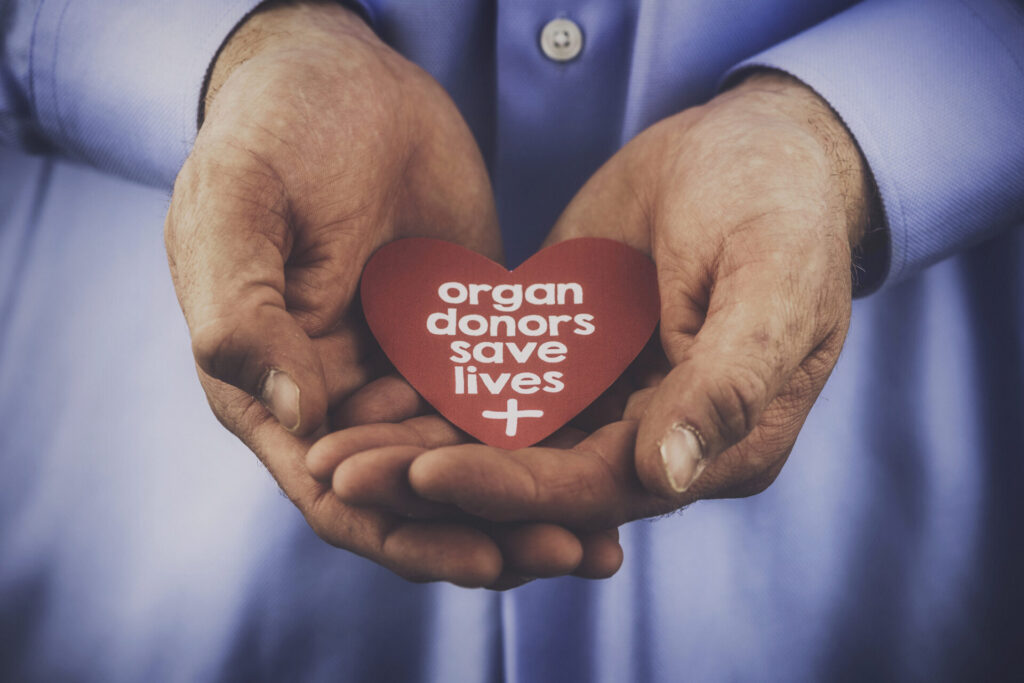
Organ donation is an outstanding act of generosity that can change lives forever. By choosing to donate your organs, you offer hope and a second chance to those in need of life-saving transplants. On World Organ Donation Day, we celebrate this selfless act of compassion, reflecting on its profound impact on individuals, families, and entire communities.
“In my own family, we’ve experienced both sides of this incredible gift. My great-aunt Mary received the precious gift of a liver transplant, granting her two more decades of a life filled with joy and cherished memories. And when tragedy struck our family years later, my cousin’s selfless act of organ donation turned a moment of immense loss into a beacon of hope for others. These experiences have shown me the transformative power of organ donation, both for recipients and their loved ones.” – Shannon Jackson.
Why Consider Organ Donation?
Organ donation is a profound act of generosity that saves lives. Every year, countless people find themselves on waiting lists, hoping for the gift of a new heart, kidney, liver, or other vital organ. Unfortunately, many do not receive the help they need in time. By becoming an organ donor, you have the power to change this and offer a second chance at life to those in need.
-
- Save Lives: One donor can save up to eight lives & improve the quality of life for many others through tissue donation.
-
- Leave a Legacy: Organ donation is a legacy of compassion and love, transcending our time on Earth.
Step-by-Step Guide to Becoming an Organ Donor

If you feel inspired to make this life-saving decision, follow this step-by-step guide to becoming an organ donor:
-
- Educate Yourself
Before you decide, it’s essential to understand what organ donation entails. Here are some resources to get you started:
-
- OrganDonor.gov: Provides comprehensive information about organ donation and transplantation.
-
- National Kidney Foundation: Offers detailed insights into the organ donation process, benefits, and myths.
Learning about the impact of organ donation and how it works will help you make the right decision.
2. Register as an Organ Donor
The process of registering as an organ donor is simple and straightforward. Here’s how you can do it:
-
- Online Registration: Visit the National Donate Life Registry to sign up online. This registry is accessible across all states, making it easy to join.
-
- State Registry: Each state has its own donor registry. You can register through your state’s Department of Motor Vehicles (DMV) when you apply for or renew your driver’s license.
-
- Healthcare App: Some health apps, like Apple Health, allow you to sign up as an organ donor directly through your smartphone.
3. Inform Your Family
After you register, it’s crucial to share your decision with your family. While your registration serves as legal consent for donation, discussing your choice with loved ones ensures they understand and support your decision. It can prevent misunderstandings during an emotional time.
4. Carry a Donor Card
Carrying a donor card in your wallet is a practical way to remind yourself and others of your commitment. You can often obtain a donor card through your state’s DMV or download one from the internet.
5. Review and Update Your Information
Keep your donor registration current by reviewing and updating your information as needed. If you move or change your contact details, ensure your registration reflects these changes.
Organ donation is a testament to the enduring power of the human spirit. It’s a legacy of love and compassion that transcends our time on Earth. As we celebrate World Organ Donation Day, I invite you to consider this extraordinary gift.
Follow us:







